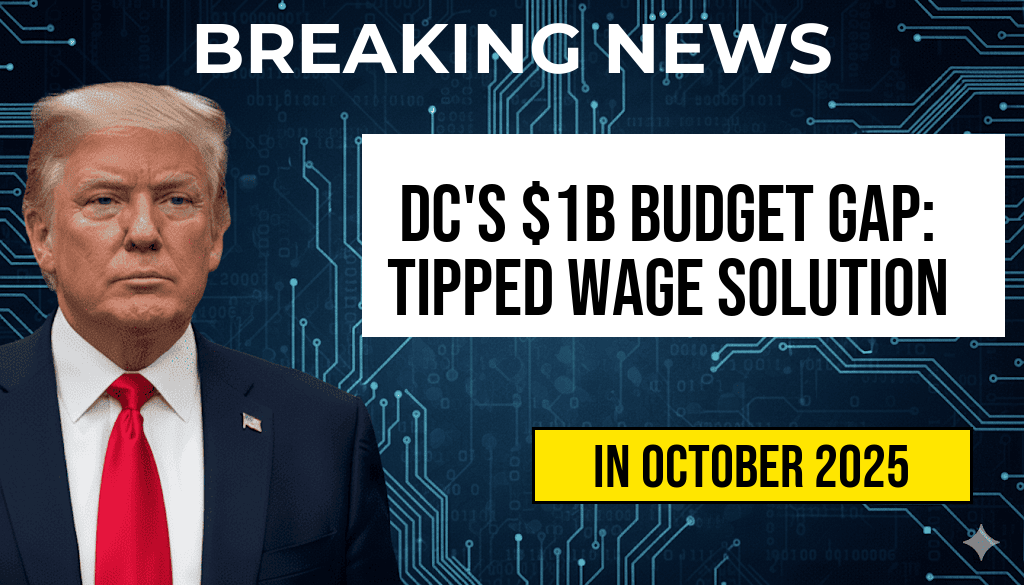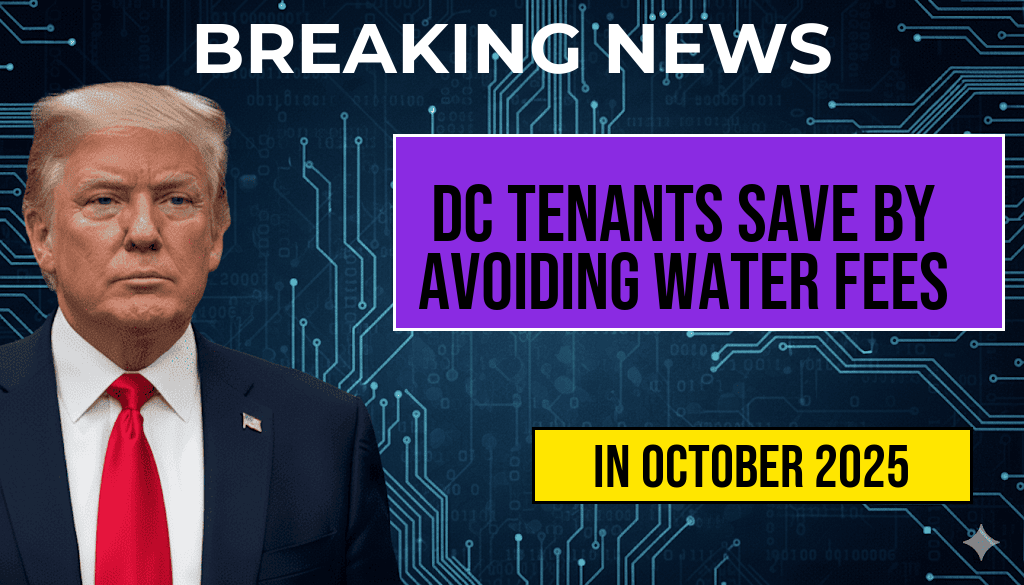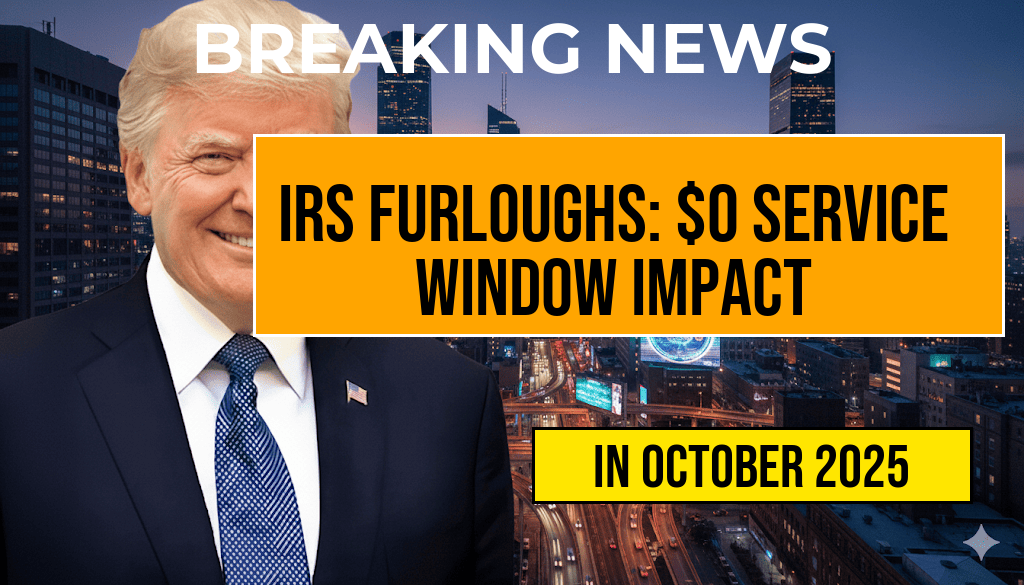Washington D.C. is grappling with a staggering budget gap of $1 billion, prompting city officials to explore various solutions to address the fiscal shortfall. One of the most controversial proposals on the table involves the reversal of the city’s tip credit policy, which currently allows employers in the restaurant and hospitality industries to pay a lower minimum wage to employees who receive tips. As discussions unfold, stakeholders are raising concerns about the implications this reversal could have on the proposed $10 tipped wage, a move that could potentially reshape the landscape of tipped employment in the District.
Understanding the Tip Credit System
The tip credit system in Washington D.C. allows employers to pay tipped workers a base wage that is below the standard minimum wage, provided that the employees earn enough in tips to bring their total earnings up to the mandated minimum. Currently, the minimum wage for non-tipped employees stands at $16.10 per hour, while tipped workers can be paid as little as $5.35, with the expectation that tips will make up the difference.
Proposed Changes and Rationale
City officials are advocating for the elimination of the tip credit, arguing that it perpetuates wage disparities and fails to provide a stable income for workers dependent on tips. The proposed solution seeks to raise the base wage for tipped employees to $10 per hour without the reliance on tips. This shift has been framed as a means to ensure that all workers receive a living wage, particularly in a city where the cost of living is among the highest in the nation.
Potential Impacts on Workers and Businesses
While proponents of the tip credit reversal argue that it will provide greater financial security for workers, many in the restaurant and hospitality sectors express concern over the potential impacts on their businesses. Some of the key implications include:
- Increased Labor Costs: Restaurants may face higher operational costs, which could lead to price increases for consumers.
- Reduced Hiring: Employers might cut back on hiring or reduce hours for current employees to manage increased wage expenses.
- Changes in Service Culture: A shift away from tipping could alter the incentives for employees to provide exceptional service.
Public Reaction and Advocacy
The debate surrounding the tip credit reversal has sparked a strong public reaction. Advocacy groups for workers’ rights have rallied in support of the proposed wage increase, highlighting the need for fair compensation. Conversely, the restaurant industry has mobilized against the change, arguing that it could threaten jobs and lead to a decrease in service quality.
Some workers have expressed mixed feelings about the potential changes. While many welcome the prospect of a higher guaranteed wage, they also fear that eliminating tips could reduce their overall earnings, especially in high-traffic establishments where tips can significantly boost income.
Legislative Process and Future Outlook
As discussions advance, city council members are weighing the pros and cons of the proposed legislation. They are expected to hold public hearings to gather feedback from both supporters and opponents. The decision-making process will involve careful consideration of the economic conditions in D.C., as well as the needs of various stakeholders.
| Category | Current Wage | Proposed Wage |
|---|---|---|
| Non-Tipped Employees | $16.10/hour | $16.10/hour |
| Tipped Employees | $5.35/hour | $10.00/hour |
Conclusion
The proposed reversal of the tip credit in Washington D.C. presents a complex challenge as the city seeks to address its $1 billion budget gap. As the legislative process unfolds, the implications of this decision will reverberate across the restaurant and hospitality sectors, influencing not only the livelihoods of tipped workers but also the broader economic landscape of the District. Stakeholders continue to advocate for their positions, emphasizing the need for a balanced approach that considers both worker welfare and business viability.
For further developments, you can read more about the budget situation in D.C. on Forbes and the current minimum wage laws on Wikipedia.
Frequently Asked Questions
What is the current budget gap facing DC?
The current budget gap facing DC is approximately $1 billion, which has prompted discussions on potential solutions to address this financial shortfall.
What is the proposed solution to the budget gap?
A proposed solution to the budget gap is the reversal of the tip credit, which could impact the wages of tipped workers in the district.
How does the tip credit reversal affect tipped wages?
The tip credit reversal would mean that employers can no longer count tips towards the minimum wage for tipped workers, potentially leading to an increase in the base wage for these employees to ensure they make at least the minimum wage.
What implications could this have for the restaurant industry?
The reversal of the tip credit may significantly impact the restaurant industry, as it could lead to higher labor costs, which may result in increased menu prices or reduced employment opportunities for tipped workers.
Are there any concerns from workers regarding this proposal?
Yes, there are concerns among tipped workers that the reversal of the tip credit could lead to unintended consequences, such as reduced income from tips or changes in employer practices that could negatively affect their earnings.













